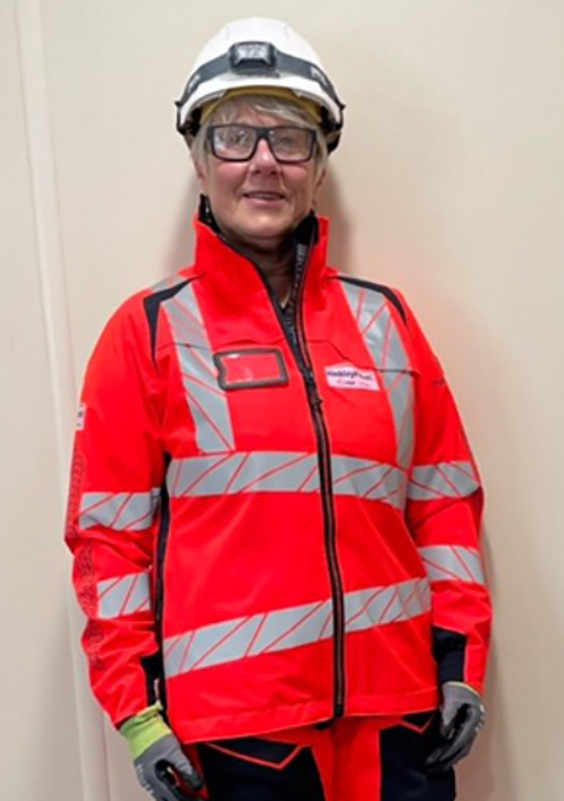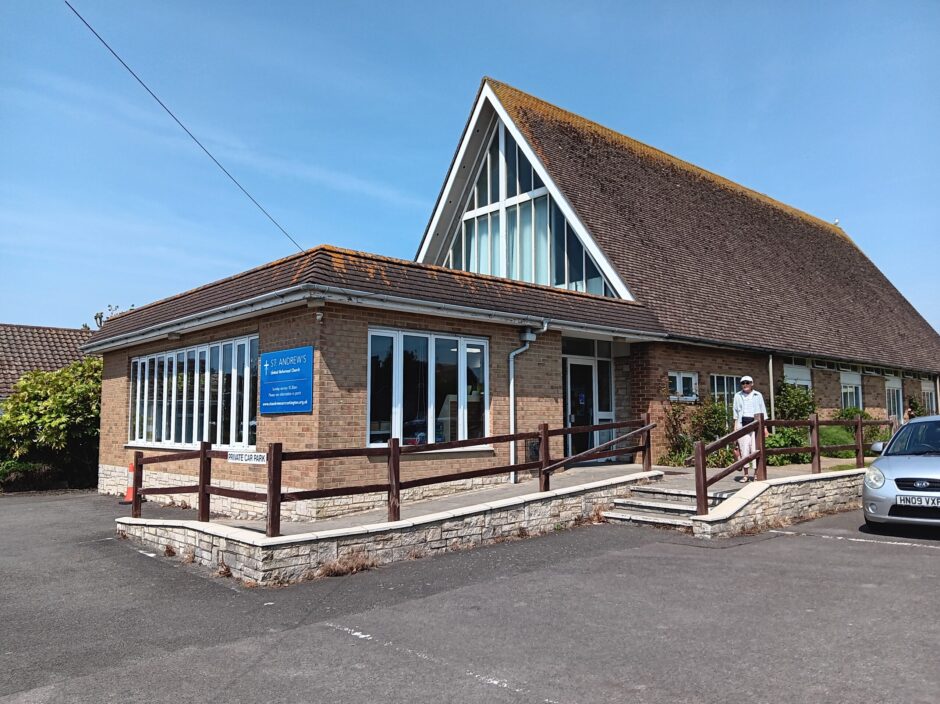Marie Trubic is a Church Related Community Worker (CRCW) and minsters with two congregations in West Somerset. These are Cannington URC, which is in the centre of the rural village with the same name and Westfield URC, which is in the market town of Bridgwater. Marie also acts as a chaplain to Hinckley Point C (HPC). This is one of the largest construction sites in Europe covering the area of 225 football pitches. Here, Marie talks about her role at (HPC) and describes why she feels it is important to provide a listening ear while fostering a sense of community and connection on site.
Set between the Quantock Hills and the North Somerset Coast (HPC) is the largest construction site in the UK and one of the largest in Europe and where a new generation nuclear power station is being built. The numbers of the workforce are enormous with currently over 12000 individuals working there and this is increasing to 15000 as it moves into the next phase of construction. The construction industry has a reputation for being a high-pressured environment with the suicide rate within this sector being higher than many others. Much of the workforce on site are working away from their homes and their families, some coming from distant countries as there are dozens of different nationalities represented at HPC.
In recognition of these stress factors, it was acknowledged that something was needed to care for the whole person rather than just the physical and so it was decided that the company would employ a chaplain to help care for the workforce. Once appointed it quickly became apparent that more chaplains would be needed to offer support to the growing workforce and so associate (volunteer) chaplains were sought.
 After completing various training courses including Mental Health First Aid, I joined as an associate chaplain in spring of 2022. I usually spend the best part of a day a week and work alongside two salaried chaplains, four other volunteer chaplains and a considerable number of employees who have also undergone Mental Health First Aid training.
After completing various training courses including Mental Health First Aid, I joined as an associate chaplain in spring of 2022. I usually spend the best part of a day a week and work alongside two salaried chaplains, four other volunteer chaplains and a considerable number of employees who have also undergone Mental Health First Aid training.
All the chaplains are people of faith, but my role is not limited to spiritual care, and you may be surprised to learn that most workers are quite keen to talk about God and faith when they are given the opportunity. However, I don’t spend most of my time sat in a room listening to people in a traditional counselling scenario as one of the most important parts of being a chaplain on site is being present and walking alongside people during both the difficult moments and the happier ones. When workers face personal challenges—whether it’s family issues, financial stress, or the toll that long hours can take on their mental health—we’re here to listen and offer support. But just as importantly, we’re also here to celebrate the milestones and the moments of joy.
My role is not only about providing a listening ear but also helping to foster a sense of community and connection on site. In a large, bustling environment of a construction site, it’s easy for people to feel isolated. But through simple conversations, chaplains help create a culture where workers feel seen and supported. The work we do is about reminding people that no matter who they are or what they’re going through, they’re not alone. For example, many of the night workforce expressed concern that they felt ‘forgotten’ as they considered that mental health support was only available during the day. Therefore, I have just completed six months covering night shifts to determine if there is a need for permanent cover by the chaplaincy. As a result, HPC have made the decision to appoint a night chaplain.
I can’t possibly get to know everyone on site, but I make every effort to ensure that as many people as possible know who I am and what I represent. Being there and ‘presence’ is a large part of my role and a little can go a long way. Maybe that is because the chaplains represent a much bigger presence.
